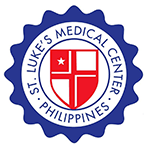Groundbreaking milestone
St. Luke’s Medical Center conducts first robotic-assisted kidney transplant in the Philippines
In an extraordinary act of selflessness and proof that a mother’s love knows no bounds, a mom donated one of her kidneys to her son. This inspiring story showcases the power of motherly love and the miracles that can be achieved through medical advancements.
This breakthrough is interwoven with the heartfelt story of the Pineda family, whose journey epitomizes the resilience of the human spirit and the remarkable capabilities of modern medicine.
At the heart of this tale is Joan Pineda, a mother propelled by an unwavering determination to save her 19-year-old son, Keith, from the clutches of a kidney ailment.
An unsettling finding unfolds
In early 2022, the Pineda family discovered Keith's deteriorating health when he experienced a sudden progression of vision loss. As they delved into medical investigations, an unsettling reality unfolded—Keith was grappling with the same kidney condition that claimed the lives of his father and grandfather.
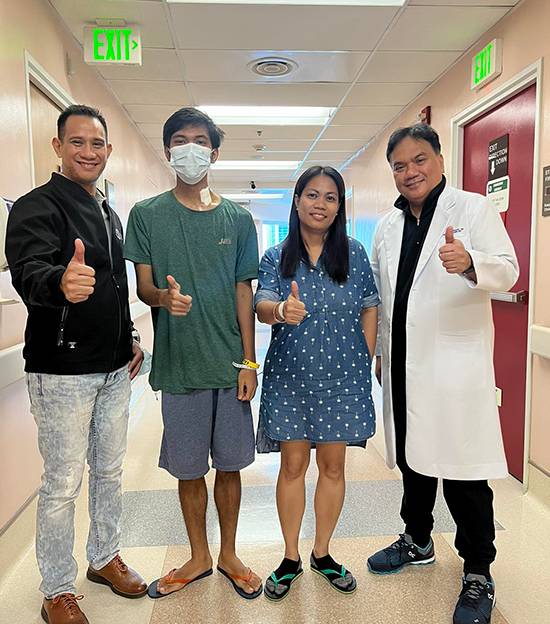
Joan, fueled by a mother's love and an unyielding spirit, decided to face this challenge head on. Leaving her job in Dubai, she undertook months of rigorous tests for Keith and her two other children. The shocking revelation that her other son shared the same condition intensified the urgency to find a solution and slow down the disease's progression.
Joan's decision to be her son’s kidney donor faced significant opposition, even from Keith and his grandmother. Despite warnings and concerns from her other children, she remained resolute, driven by the purpose of providing Keith with the best quality of life through the fastest means possible—a decision that ultimately led to the first robotic-assisted kidney transplant in the Philippines.
Precision and innovation
This compelled the Pineda family to consult again with Dr. Ronald Anthony Faller, who not only recommended kidney transplantation but also played a key role in the realization of the robotic-assisted procedure. The encounter with Dr. Faller at St. Luke's Medical Center was a fateful reunion, setting the stage for a groundbreaking surgical endeavor through St. Luke’s Social Services and St. Luke’s Medical Center Foundation, Inc.
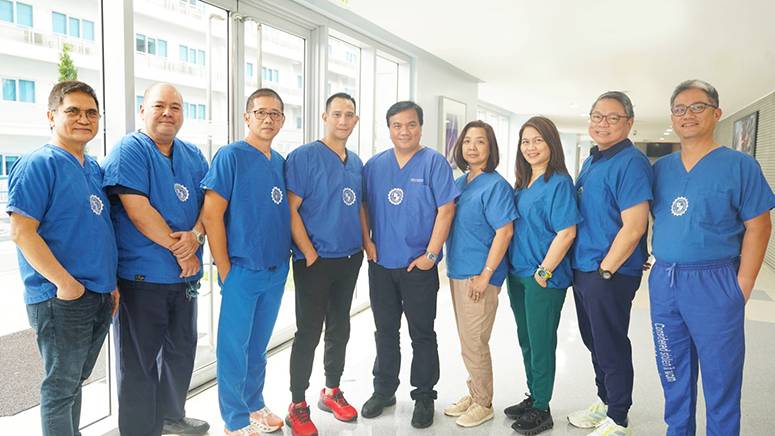
Dr. Faller, equipped with international training in preparation for the pioneering Robotic Assisted Kidney Transplantation, collaborated with an equally stellar surgical team led by Dr. Dennis P. Serrano, who is also a renowned robotic surgeon. The procedure was conducted with precision and expertise, marking a significant leap in the field of renal transplantation.
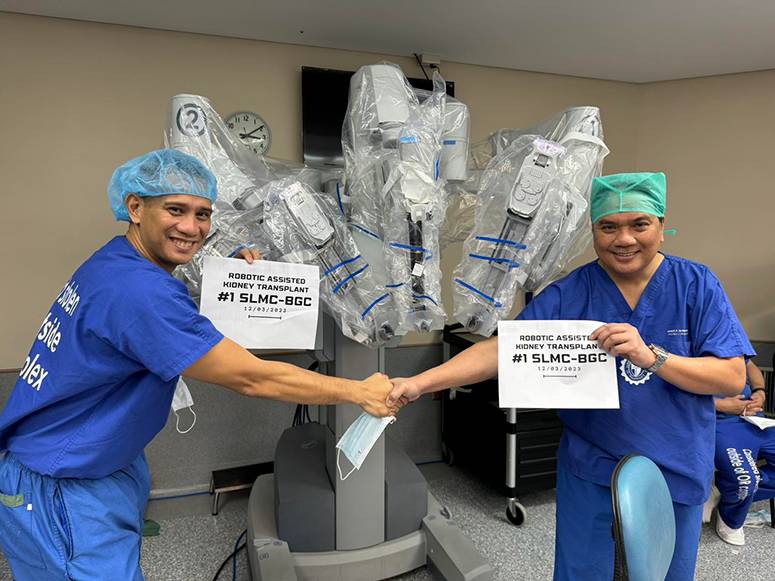
With the assistance of cutting-edge robotic technology, the skilled surgeons performed a “minimally invasive surgery” with unmatched precision. The robotic system allowed for a meticulous kidney transplantation, ensuring optimal outcomes and faster recovery.
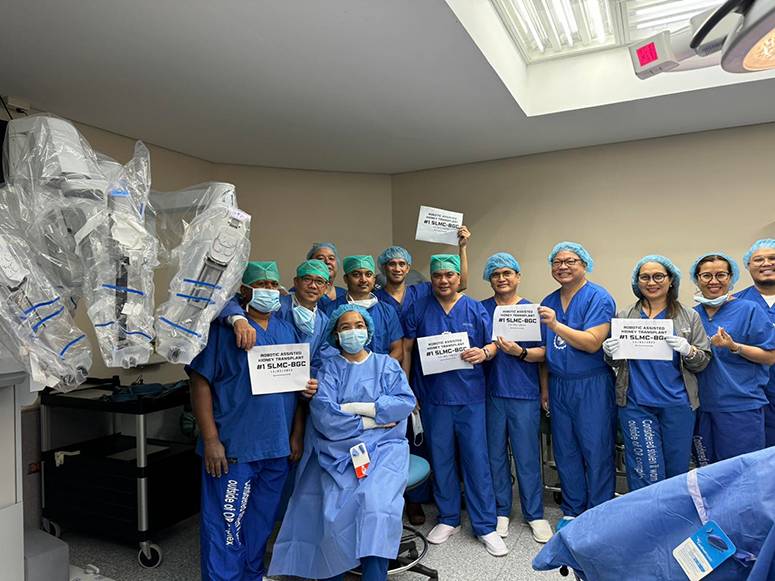
A safer, more efficient procedure
Dr. Faller and Dr. Serrano’s team utilizes state-of-the-art robotic-assisted technology to enhance surgical precision and efficiency. This groundbreaking approach minimizes risks, reduces post-operative complications, and promotes faster healing. This technology offers a viable minimally invasive solution for kidney transplant patients.
Paving the way for a brighter future
With this revolutionary approach, St. Luke’s has elevated the standard of care, ensuring enhanced precision and minimally invasive procedures for kidney transplants. Both the living donor and the recipient—a devoted mother and her beloved child—experienced swift recovery and are already on their way to better health.
St. Luke’s Medical Center is committed to pushing boundaries and embracing innovation in healthcare. By performing the first-ever robotic-assisted kidney transplant in the Philippines, it is not just making history but also paving the way for more advanced procedures that will transform lives.
* * *
Editor’s Note: This article was provided by St. Luke's Medical Center.


